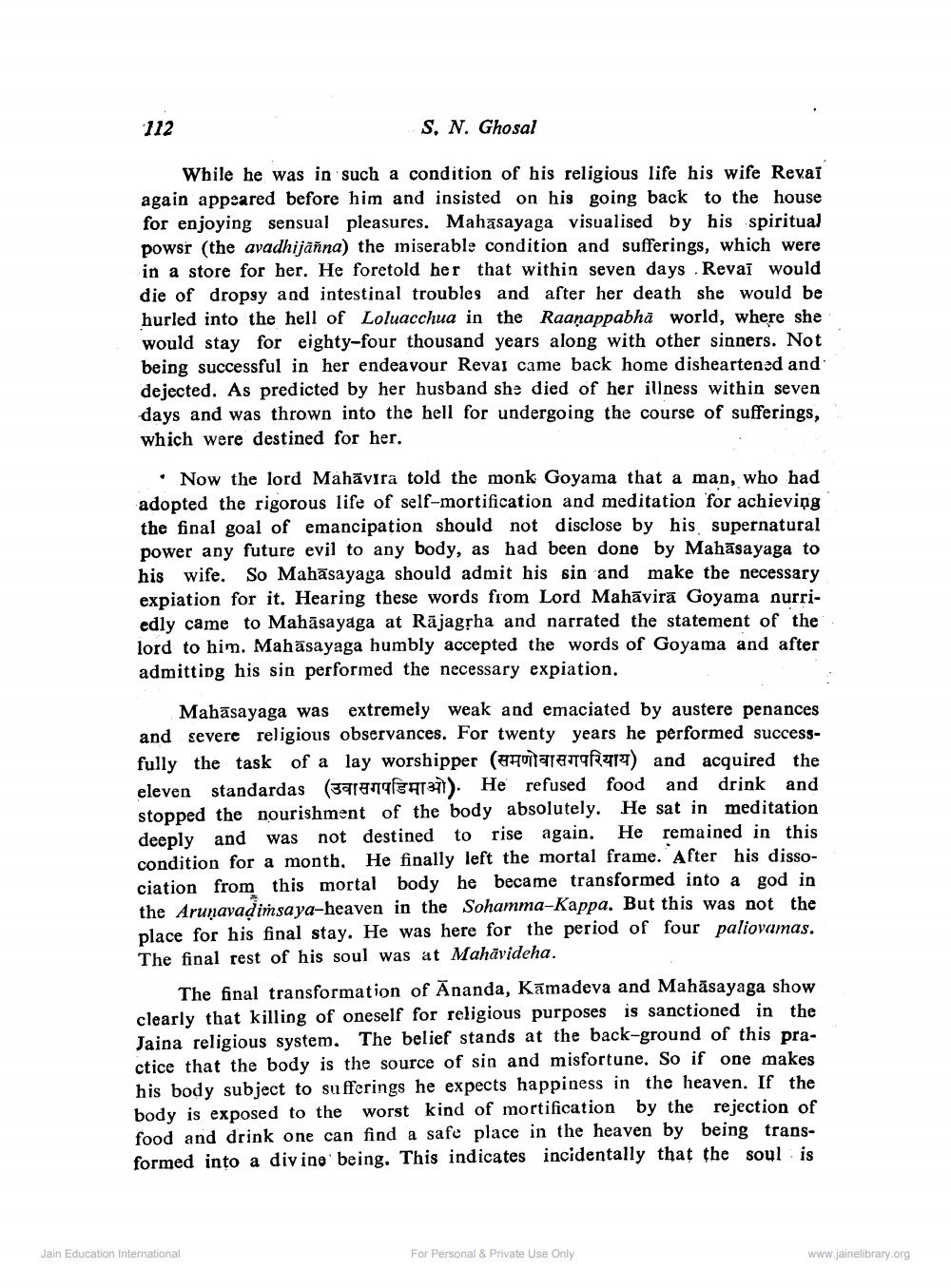________________
112
S, N. Ghosal
While he was in such a condition of his religious life his wife Revai again appeared before him and insisted on his going back to the house for enjoying sensual pleasures. Mahasayaga visualised by his spiritual pows' (the avadhijāñna) the miserable condition and sufferings, which were in a store for her. He foretold her that within seven days. Revai would die of dropsy and intestinal troubles and after her death she would be hurled into the hell of Loluacchua in the Raanappabhā world, where she would stay for eighty-four thousand years along with other sinners. Not being successful in her endeavour Revai came back home disheartened and dejected. As predicted by her husband she died of her illness within seven days and was thrown into the hell for undergoing the course of sufferings, which were destined for her.
• Now the lord Mahāvira told the monk Goyama that a man, who had adopted the rigorous life of self-mortification and meditation for achieving the final goal of emancipation should not disclose by his supernatural power any future evil to any body, as had been done by Mahāsayaga to his wife. So Mahāsayaga should admit his sin and make the necessary expiation for it. Hearing these words from Lord Mahāvirā Goyama nurriedly came to Mahāsayaga at Rājagļha and narrated the statement of the lord to him. Mahäsayaga humbly accepted the words of Goyama and after admitting his sin performed the necessary expiation.
Mahāsayaga was extremely weak and emaciated by austere penances and severe religious observances. For twenty years he performed successfully the task of a lay worshipper (antarany ) and acquired the eleven standardas (saran 411). He refused food and drink and stopped the nourishment of the body absolutely. He sat in meditation deeply and was not destined to rise again. He remained in this condition for a month. He finally left the mortal frame. After his dissociation from this mortal body he became transformed into a god in the Aruņavad insaya-heaven in the Sohamma-Kappa. But this was not the place for his final stay. He was here for the period of four paliovamas. The final rest of his soul was at Mahāvideha.
The final transformation of Ananda, Kamadeva and Mahāsayaga show clearly that killing of oneself for religious purposes is sanctioned in the Jaina religious system. The belief stands at the back-ground of this practice that the body is the source of sin and misfortune. So if one makes his body subject to sufferings he expects happiness in the heaven. If the body is exposed to the worst kind of mortification by the rejection of food and drink one can find a safe place in the heaven by being transformed into a divine being. This indicates incidentally that the soul is
Jain Education International
For Personal & Private Use Only
www.jainelibrary.org




